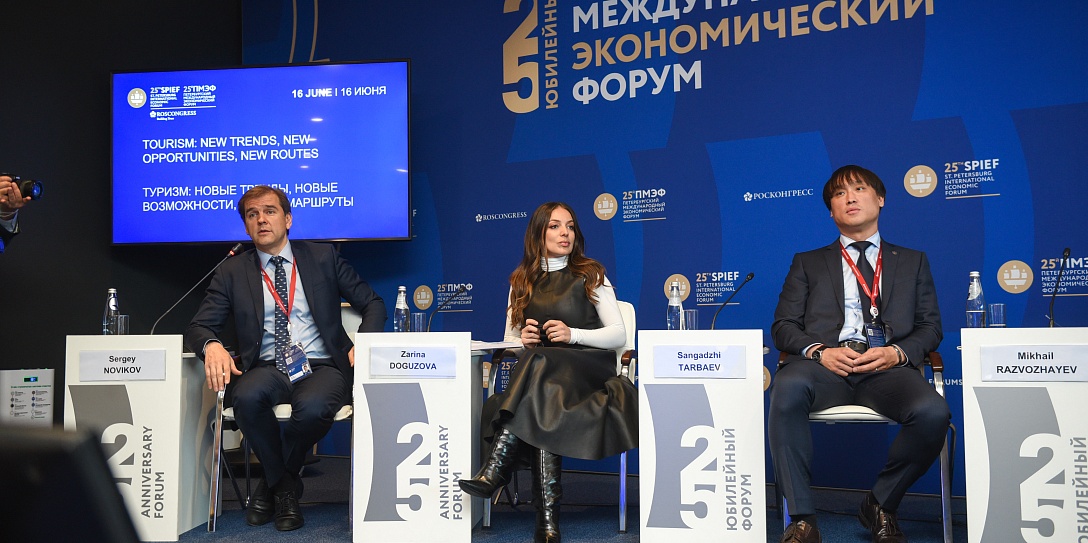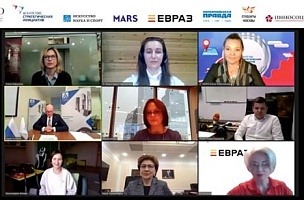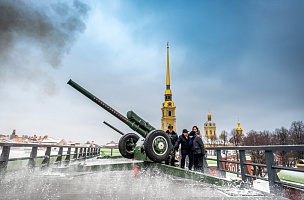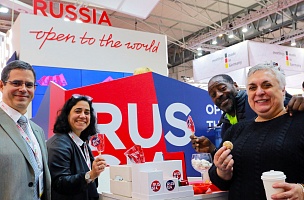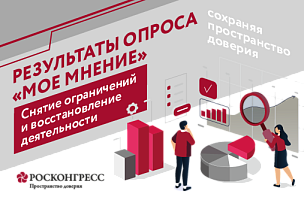Key conclusions
Tourism to drive Russia’s economic development
“I would very much like to see our country’s new economic development model also emphasize non-resource sectors of the economy, and tourism could drive development in a major way. […] I am convinced that tourism is a key non-resource industry with the potential to drive the development of this new model of economic development in our country. […] Tourism increases jobs more than anything else... tourism is about the development of territories, about regional economies,” Zarina Doguzova, Head, Russian Federal Agency for Tourism.
“River tourism can also help develop Siberia, the Arctic. I was recently in Yakutia, for example, and you could launch a cruise ship from there to the Arctic Ocean. What other countries have a tourist product like that?” Sangadzhi Tarbaev, Chairman of the Committee on Tourism and Tourism Infrastructure Development, State Duma of the Federal Assembly of the Russian Federation.
“I told my colleagues, I issued instructions – this industry has to be developed because it will drive other economic sectors. [...] And it’s true. It’s still the case. But what we see in practice is that today, because of everything, the tourism industry is becoming quite self-sufficient in economic terms,” Batu Khasikov, Head of the Republic of Kalmykia.
The popularity of domestic travel
“The structure of consumption [in tourism in Russia – Ed.] is changing, we have a concentration of demand within the country,” Zarina Doguzova, Head, Russian Federal Agency for Tourism.
“In fact, tourism today... has created a new opportunity in our country. If it were not for the COVID restrictions, the restrictions we have received today, maybe it would have been the same: Turkey in the summer, Egypt in the autumn, the Emirates in the winter. [...] Now we’ve been presented with a unique opportunity,” Sergey Melikov, Head of the Republic of Dagestan.
“The logistics this year... are a bit more complicated, but the flow of people by car, which is increasing by the day, indicates that... the tourist season in Sevastopol will be a full one. And in Crimea as a whole,” Mikhail Razvozhayev, Governor of Sevastopol.
PROBLEMS
Russian tourist infrastructure can’t keep up with demand
“The infrastructure can’t support the number of people who want to holiday within the country. [...] In terms of quality holidays... there is a lack of modern tourism infrastructure. There are logistical limitations,” Zarina Doguzova, Head, Russian Federal Agency for Tourism.
“Last year, more than a million tourists visited Dagestan... this year we expect one and a half million. [...] We can’t actually accommodate either a million or one and a half million. They come, they leave satisfied for the most part, but it isn’t the tourism industry, it’s really just the hospitality industry,” Sergey Melikov, Head of the Republic of Dagestan.
SOLUTIONS
Changing tourism route logistics and staffing
“We need to build new transport corridors, make new decisions – we are working with the Ministry of Transport here to create a large federal network of multimodal routes in order to expand logistically and help people travel more conveniently. [...] Restrictions on entry and exit... here, too, we need to look for new partnership corridors, build new partnerships with countries that are willing to develop tourism on a mutually beneficial basis. [...] We need to keep upgrading the tourism infrastructure at existing resorts, and we need new, modern hotels – in general, we need to increase hotel capacity by at least two hundred percent. Besides that, we definitely need to create new resorts – seaside resorts more than anything else. [...] We need completely new, modern resorts that meet the requirements of the modern tourist – first and foremost, of course, those looking for a comfortable family holiday. This is a very big, global task, which could take up to 10 years on average. There are such promising territories – on the Caspian Sea and in southern Russia. We will talk to the leadership of the country. And there has to be the creation of a new, big federal sea resort. [...] We need to set up new international corridors and bring in foreign tourists... to launch a single electronic visa regime for 52 countries... we don’t think that there are currently any obstacles standing in the way of… launching this single electronic visa... And the second thing for international tourism, which we will focus on, is very active marketing, active promotion... starting from this year, we will launch a big advertising campaign in a number of Middle Eastern countries for the very first time,” Zarina Doguzova, Head, Russian Federal Agency for Tourism.
“If we have enough people actively involved in developing tourism, we will succeed 100%. [...] I am convinced that the key to quality training is the involvement of investors,” Vladimir Solodov, Governor of Kamchatka Territory.
“The volumes we have today in terms of training in this area... of course, can’t keep up with the volume prescribed in the national project. We are currently training about 11,000 people in this area, but in the near future we will need 250 [thousand – Ed.], i.e., we’re already lagging behind. It is very important for us today to create the mechanisms that would allow us to saturate this area with personnel, both direct and indirect. […] Now we’re working on this too, and we’re in discussions with the government about creating it, and the mechanisms that will be needed, and getting specialist universities involved in this work,” Sangadzhi Tarbaev, Chairman of the Committee on Tourism and Tourism Infrastructure Development, State Duma of the Federal Assembly of the Russian Federation.
Supporting investment appeal
“The most important thing we could do is support investment in tourism within the country. [...] We have to make tourism attractive and profitable for investment. There are three key areas for work, which, in general, are the same as always. We will continue to reduce the tax burden. This year’s revolutionary decision – zero VAT for hotels and hotel services – comes into force as of 1 July, but we believe that... we need to continue to reduce the tax burden. The next thing is to have cheap, long-term loans for investors who want to build hotels. It’s a programme that started at the end of last year. […] And the third thing... helping businesses extend the season,” Zarina Doguzova, Head, Russian Federal Agency for Tourism.
“What I want to emphasize... I don’t think we should be forgetting about the investment attractiveness of tourism. It has rightly been said that we should be in direct contact with investors. Moreover, I believe that we need to create conditions where even a small individual entrepreneur, self-employed, micro-business could easily choose a site and attach support measures to it – and there are plenty of them now, including grants from Rostourism, and this year we are seeing direct, qualitative changes,” Vladimir Solodov, Governor of Kamchatka Territory.
Read more in the Roscongress Foundation Information and Analytical System roscongress.org


